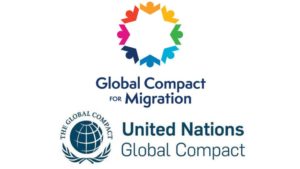Opinion – Global compact nothing to fear
 The Global Compact for Migration is expected to be adopted in December and will be a first attempt to develop an internationally shared view of what safe, orderly and regular migration should look like, as well as a pathway towards that.
The Global Compact for Migration is expected to be adopted in December and will be a first attempt to develop an internationally shared view of what safe, orderly and regular migration should look like, as well as a pathway towards that.
The US and Hungary have disavowed the whole process and withdrawn their commitment to sign the compact and now Australia has signalled it may also withdraw arguing that it surrenders national sovereignty.
But there is a strong case that adopting the compact would be of benefit to Australia.
First of all, its purpose is to strengthen international cooperation on migration. While nations have made significant progress is regulating other areas of common interest – such as trade, terrorism and finance – migration has never been a subject of common agreement.
But now, there is broad agreement that no country can deal with migration alone and that working collaboratively is the only way to make sure migration works for everyone.
The process gives member states of the UN the ability to influence the set of broad guiding principles that will make up the compact. Being outside that process sells short the reality of nations’ interdependence when it comes to migration.
Those questioning the compact appear to be countries most worried about irregular migration.
But the compact is about much more than irregular migration. It is also about the need to develop a strong evidence base, so that migration policies are sensible and serve the needs of both sending and receiving countries.
It is also about promoting regular migration pathways that benefit everyone. It is about making sure that migrant workers – the backbone of many developed economies, including those of Australia – are able to move, live and work in safety and dignity.
Arguments that the compact will compromise sovereignty and force countries to do things counter to their interests don’t hold water.
When UN member states meet in Morocco in December to sign off on the Global Compact and its companion, the Compact on Refugees, they will be avowing their assent to its basic principles.
They will also be signalling an intention to do their best to implement what has been agreed.
From the start, the compact was never intended to impose legal obligations. A core principle of the final document says clearly: “the sovereign right of states to determine their national migration policy and their prerogative to govern migration within their jurisdiction in accordance with international law”.
And there are more inbuilt protections to sovereignty.
Under compact states are entitled to remove migrants who do not have a legal right to remain in their territory, subject to certain protections being in place.
But without cooperation from the country of origin, repatriation can be difficult.
The compact points out responsibilities of countries of destination and countries of origin to facilitate safe and dignified return and readmission.
This creates a framework that can be the basis of a genuine partnership. It may not solve the problem of return and reintegration, but it’s better than what exists.
The compact also offers progress on the issue of detention – a controversial issue for many countries, including Australia.
It carefully states that detention should be seen as a last resort and it encourages nations to use non-custodial alternatives while reminding of existing legal obligations under human rights agreements.
But the compact cannot force any government to do anything it doesn’t want to do and detention provisions are nuanced to give governments wriggle room on detention.
But it does suggest detention not be used as a tool to punish or deter migrants. It highlights the special vulnerabilities and needs of children in detention.
The wording of the compact could never be construed as a threat to sovereignty.
What it really is – is just a gentle reminder that nations should treat people with decency and humanity.
It is a first, tentative step towards a fair and humane global approach to migration.
Laurie Nowell
AMES Australia Senior Journalist












